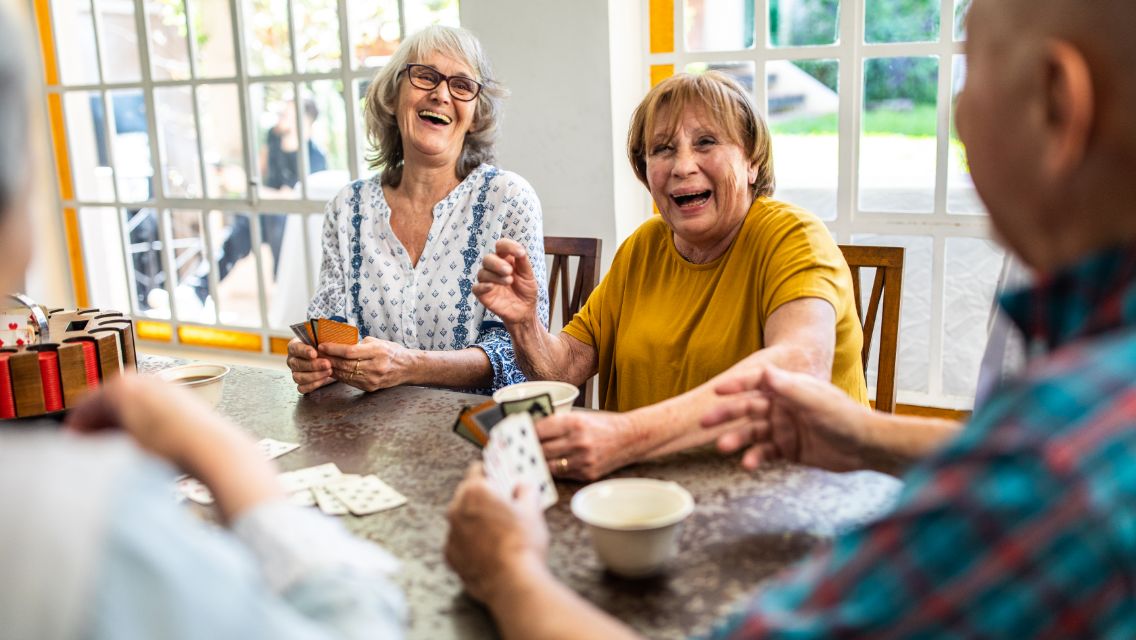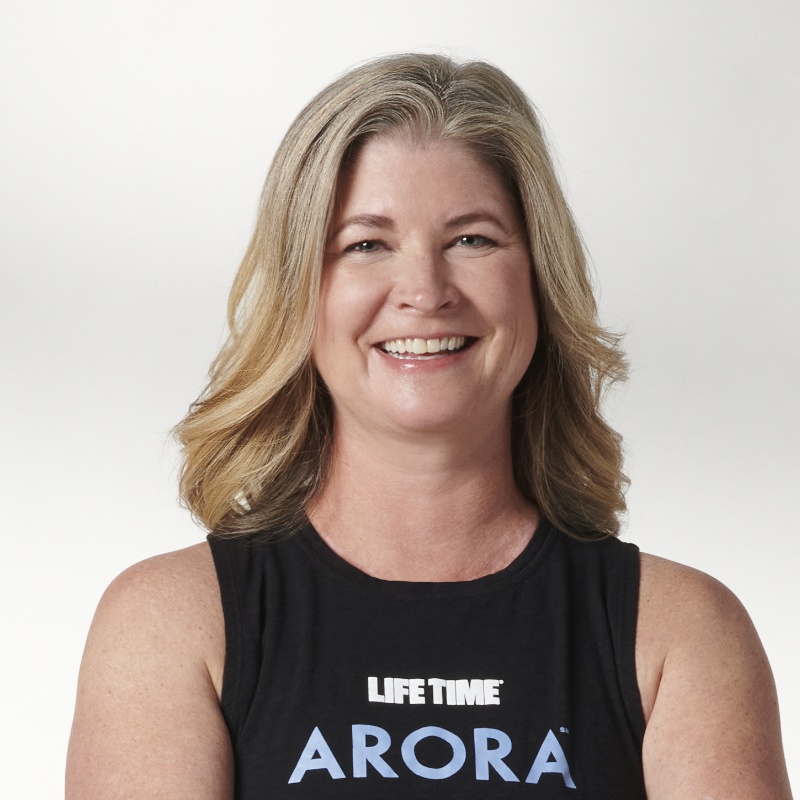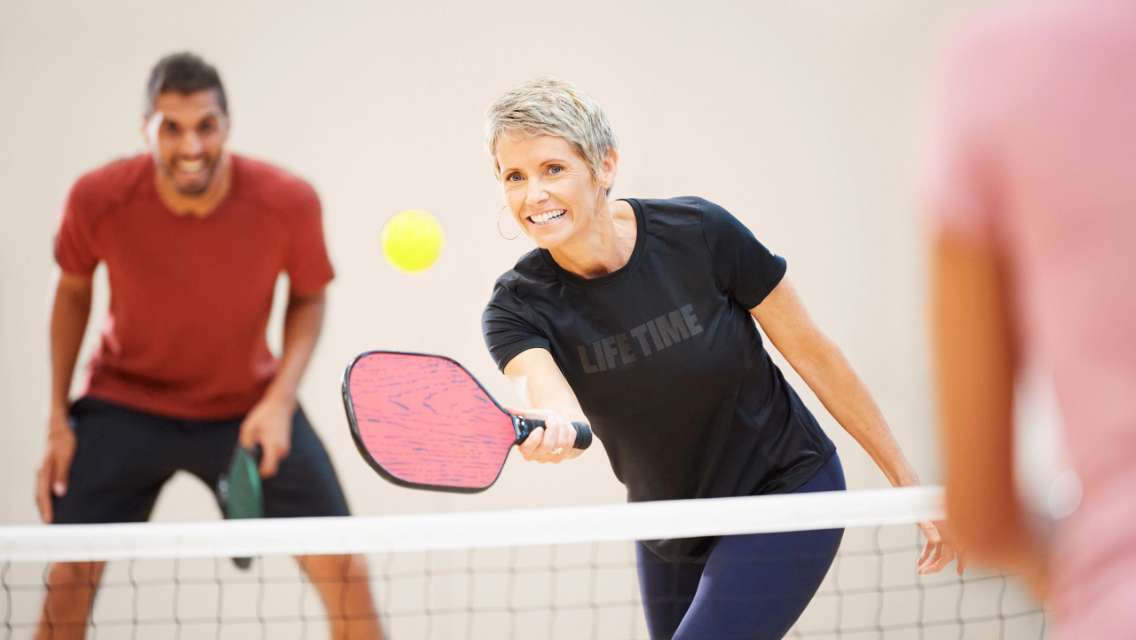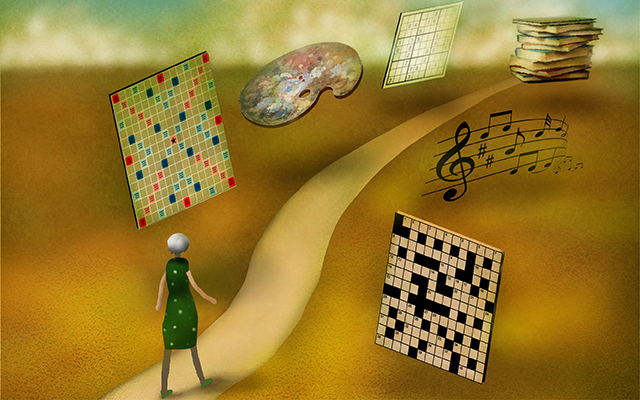I’m a big fan of games. In fact, I recently spent a few days with my family enjoying what we call our Weekend of Competition. It included a mix of card games, spoons, board games, dodgeball, fishing, and sleeping contests. Each activity is worth between one and three points, based on your finish, with no points for coming in last. We keep a tally throughout the weekend, and the person with the most points overall is the winner.
Even though I placed fourth (out of four), it didn’t matter: The weekend was entertaining, energizing, and, though I didn’t really think about it at the time, supportive of my overall health.
At Life Time, there are a number of ways to get involved in sports — there are pickleball, tennis, swimming and UHoops leagues, for instance. But supporting our health is not just dependent on staying physically active: It’s also about emotional, mental, and social well-being. And there is an entire segment of games we’re missing, including social games like cards, dice, and others, that challenge our brains.
As we began launching ARORA, we discovered many people were already casually gathering in our athletic country clubs for Bridge and other games — and realized there was an opportunity to bring members together more formally for these activities in the common areas in our clubs.
To that end, as part of the growing ARORA offerings, there are now Game Boxes available in all Life Time locations. The aim? For gatherings and games to happen everywhere, in a more purposeful way — because these social activities feed our health in myriad ways, including these three:
1. They help create COMMUNITY.
For many people who enjoy ARORA, the pandemic shook up their social routines and circles as clubs of all sorts took a hiatus. While interest in and engagement with online gaming has grown in recent years in the 50-plus segment, it can’t replace the experience of coming together for a game of cards.
For instance, I grew up in Ohio, where euchre is a popular card game. I learned it at a young age, as it was a part of the Thanksgiving card tradition with our extended family. We’d feast and then split off — adults playing nickel poker and the kids playing euchre. All the while, we talked, we laughed, and we connected with each other.
As I got older, finding others who knew the game within my expanding communities (like those at college) opened the door to new friendships, while also providing a sense of comfort. I’ve since taught my husband to play so that we can partner up and play with (or teach!) other couples.
I appreciate the euchre apps that allowed us to play with “euchre friends” during the pandemic, helping us stay connected and have a little fun. But there is simply no comparison to the in-person interaction and banter of sitting around a table, playing with others.
2. They can foster healthy COMPETITION.
Competition is a part of life, occurring in nearly every aspect of our lives, from career to sports. Playing card and dice games offers a good opportunity to focus on healthy competition — as an individual and on teams.
Competition inspires us to do and give our best and to think strategically as we work toward the goal of winning. (Win or lose, though, competition is also an opportunity to accept the outcome with grace.)
3. They can boost COGNITIVE HEALTH.
Just as it’s important to exercise our bodies, we also need to exercise our brains. Games encourage us to think, reason, and problem-solve.
Whether you’re concerned with your cognitive health or not, playing games is one way to support your memory and maintain an active mind, which can help you maintain independence. If you have a daily routine already — be it doing a newspaper crossword or a playing a logic, card, or tile game on an app — keep it up.
If you are looking for that consistent challenge, find a group to play with; this can help you stay accountable (and give your brain a boost, too!).
Let’s Play!
When you’re at your athletic country club, we hope you will pick up one of the Game Boxes and play with your community. Teach a new friend one of your favorite games or learn something entirely new. If you’re interested, stop by your Membership Concierge desk to get started.





